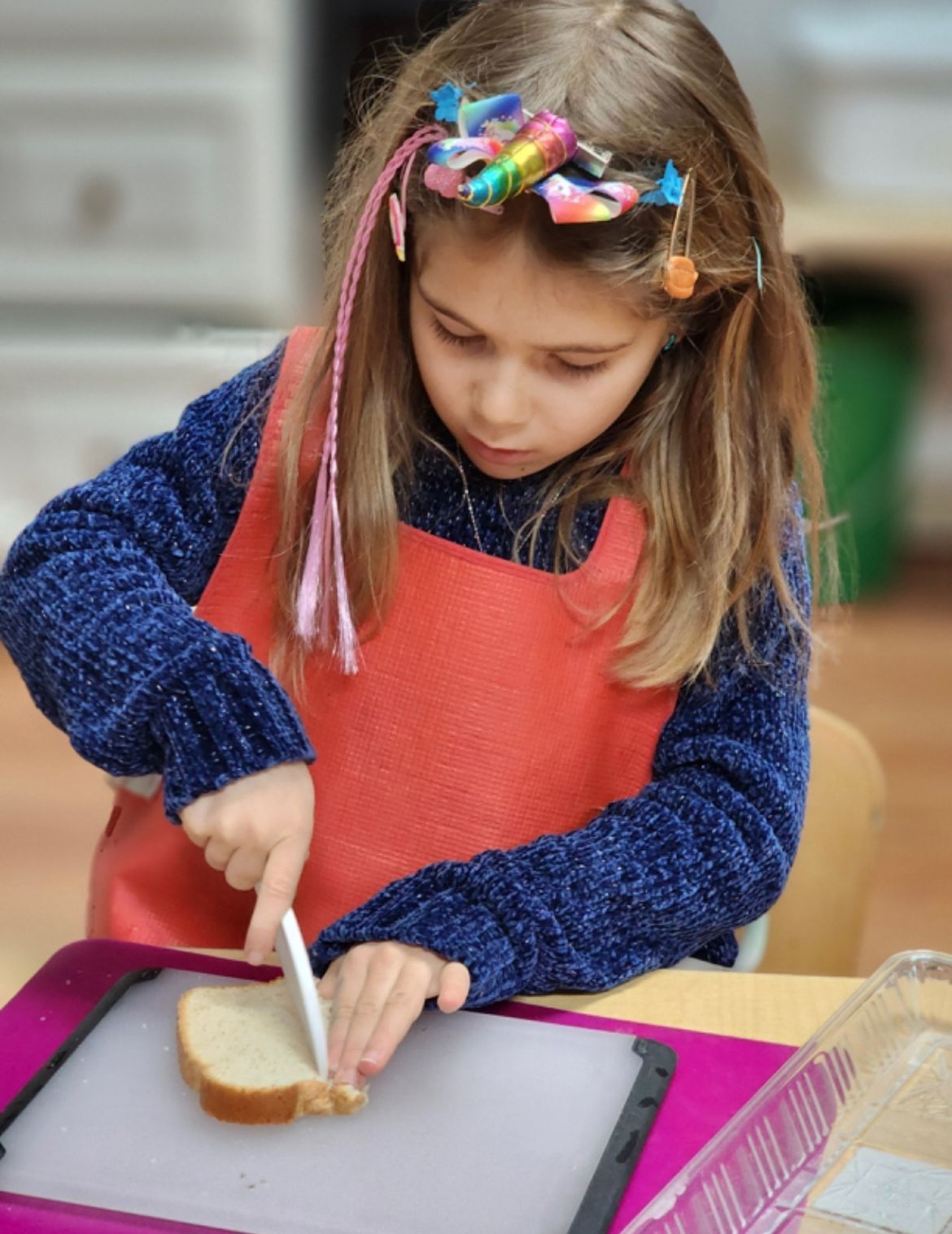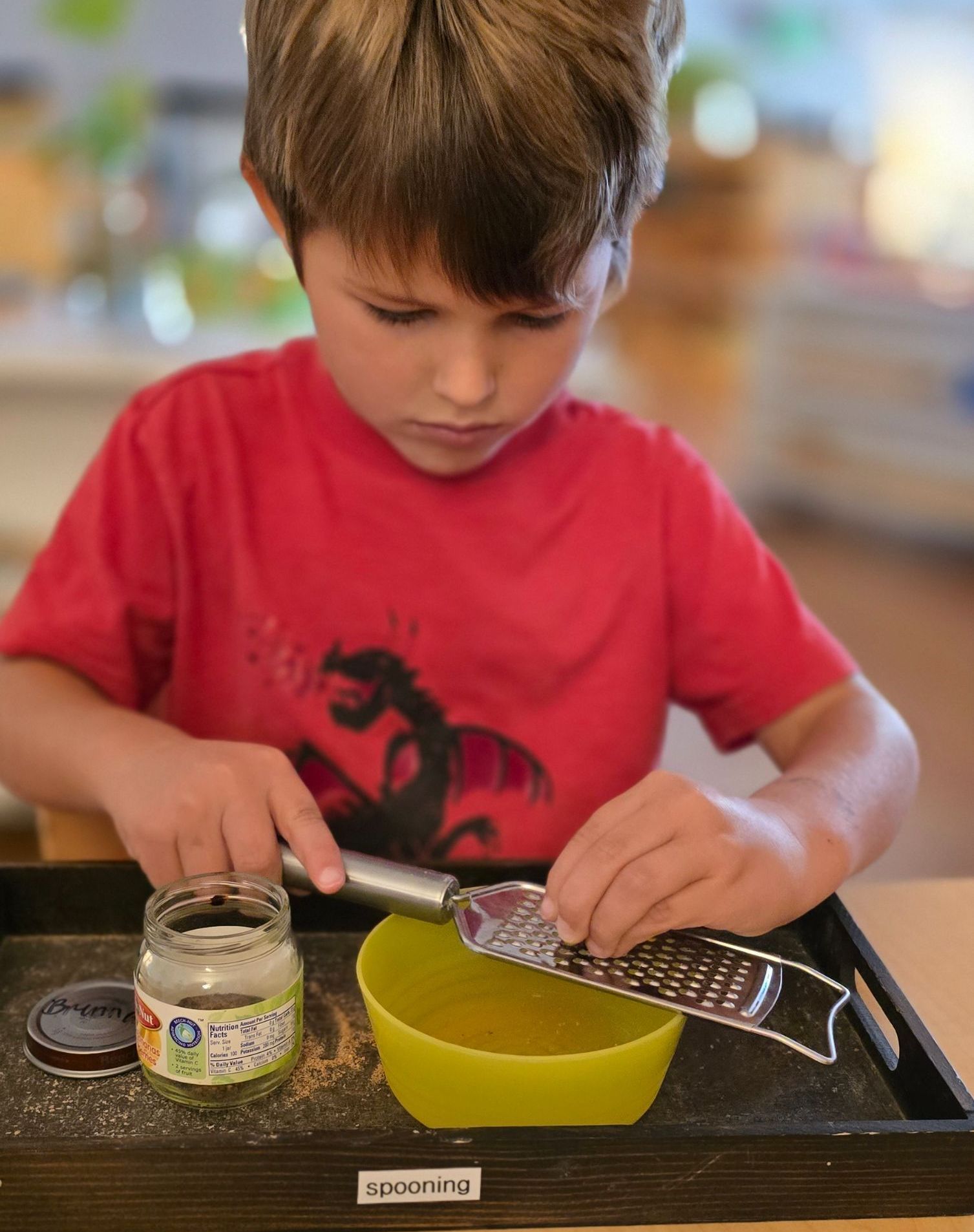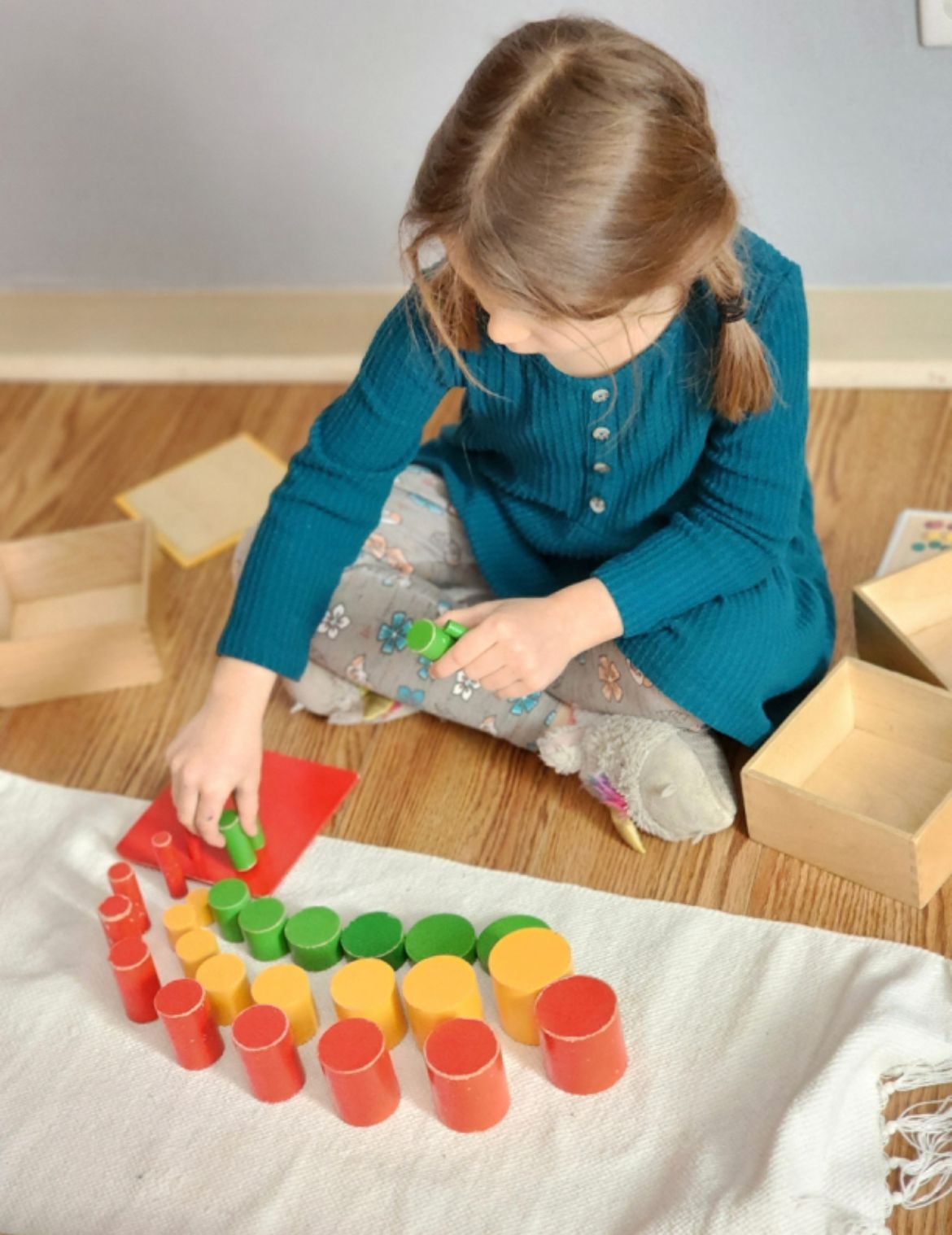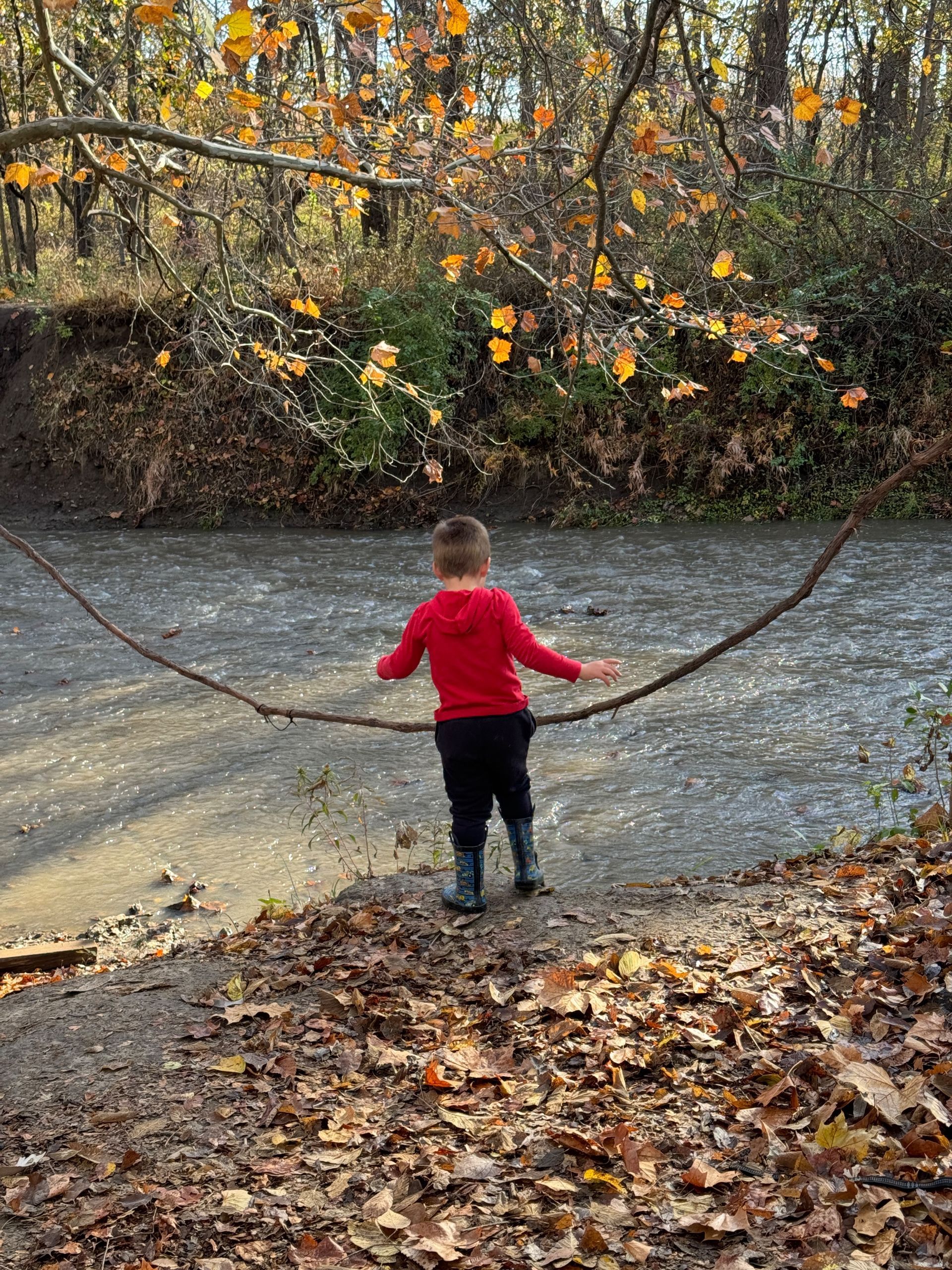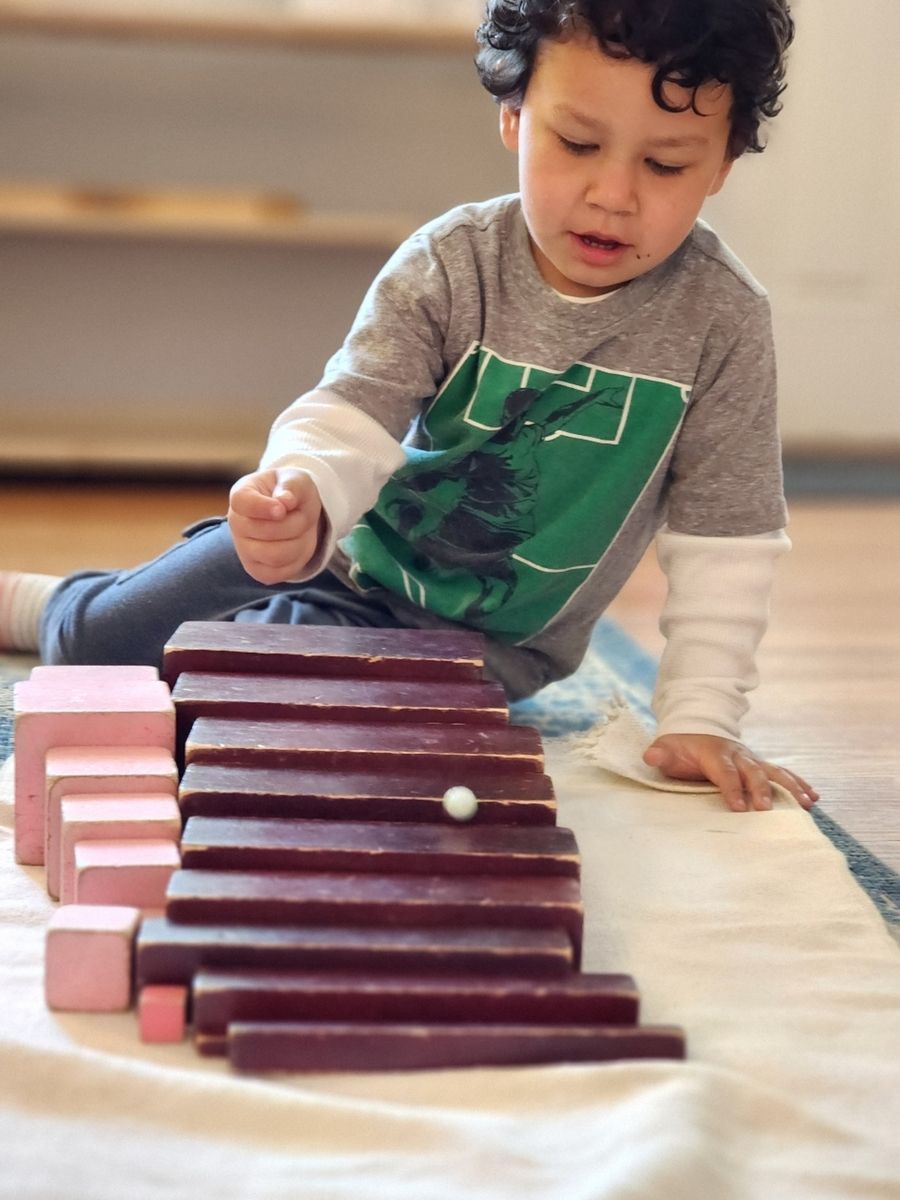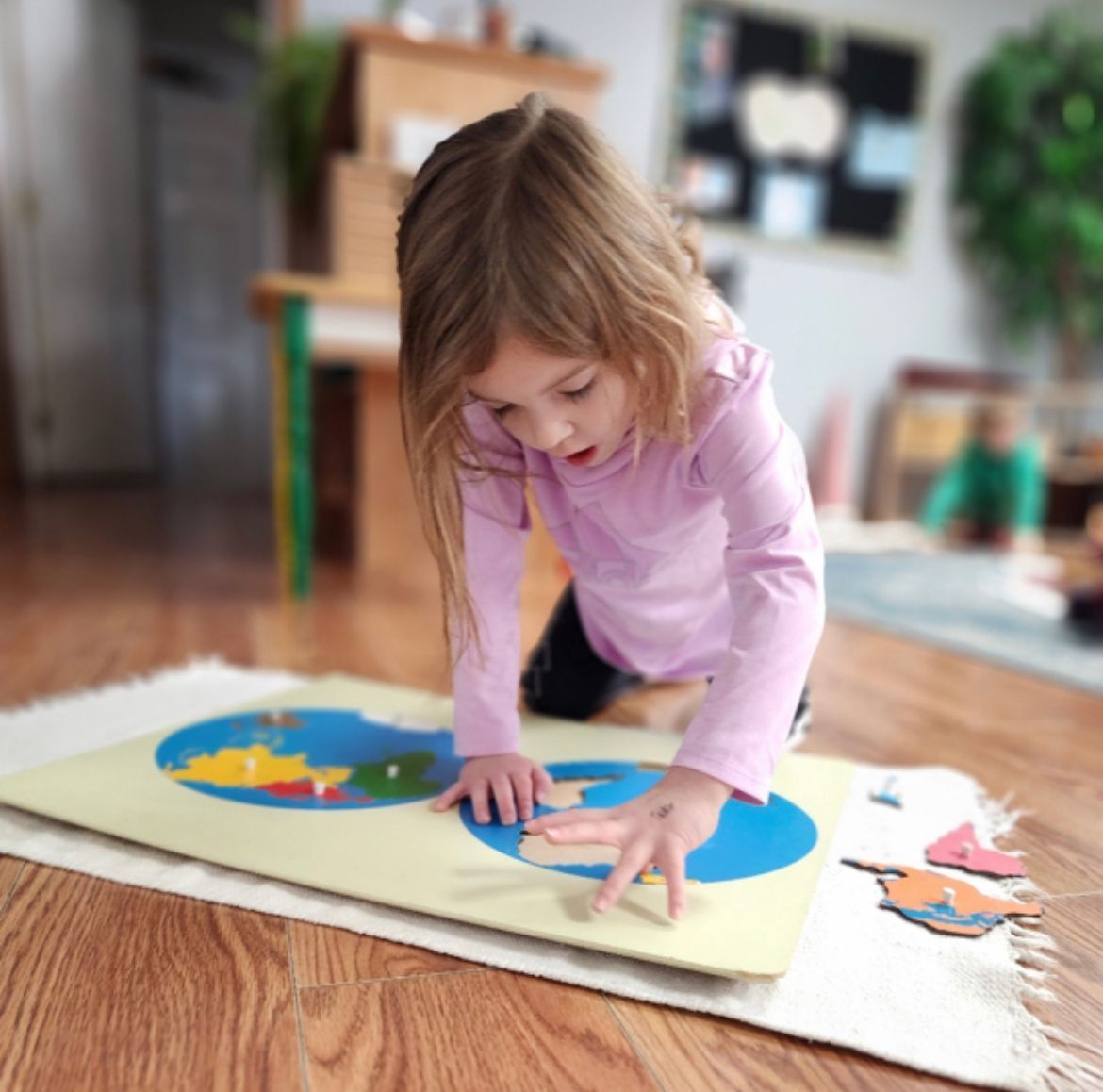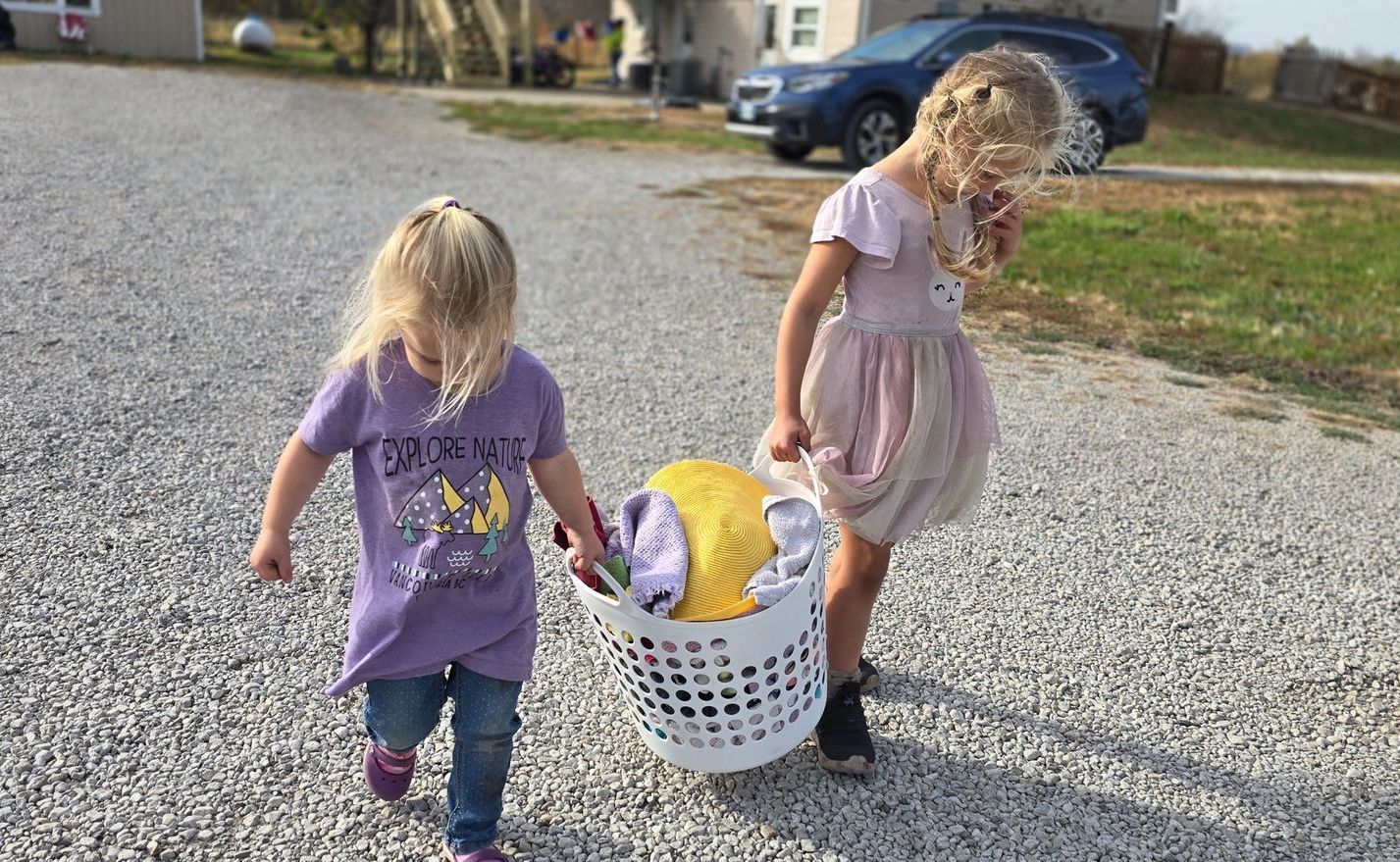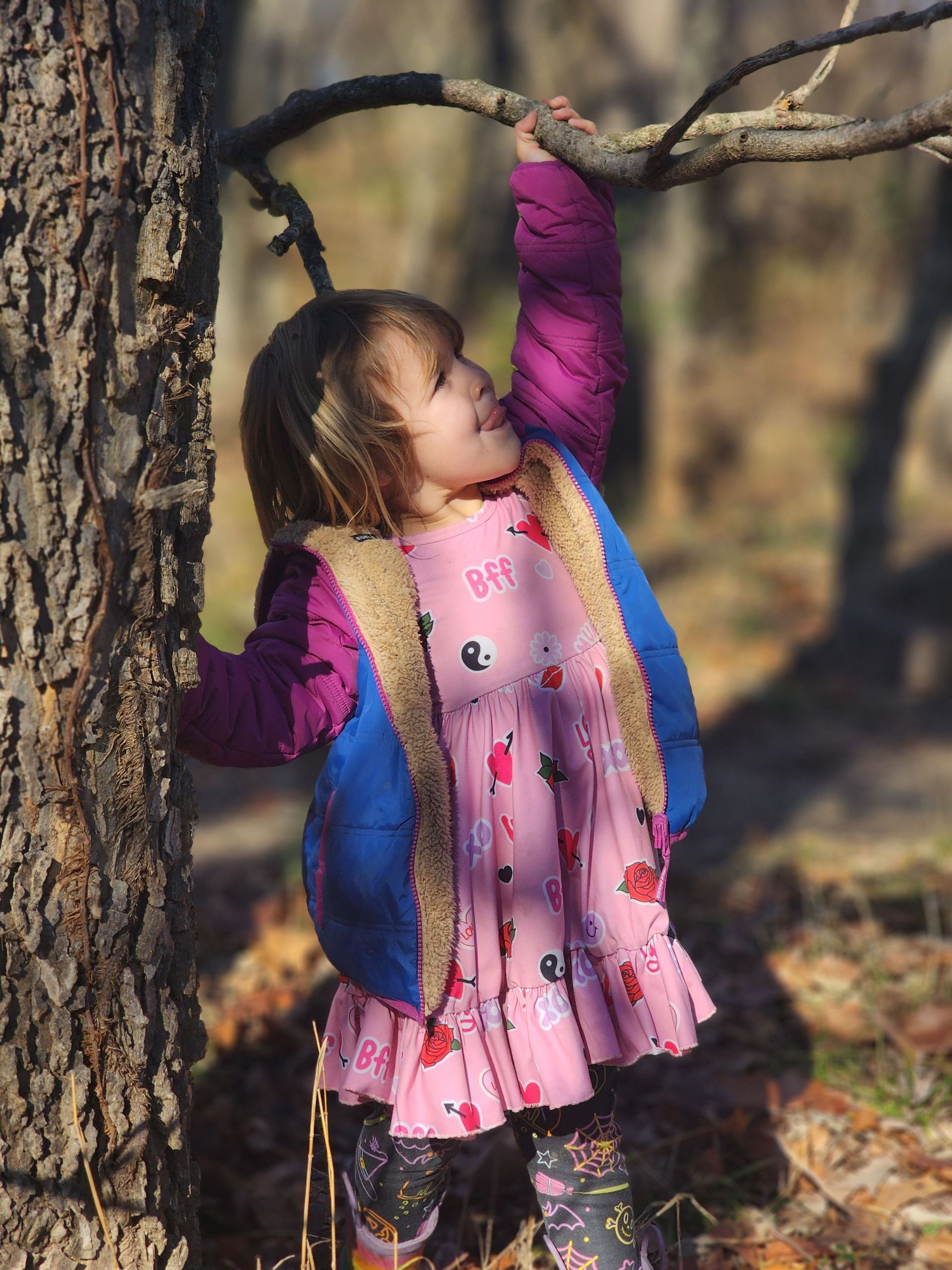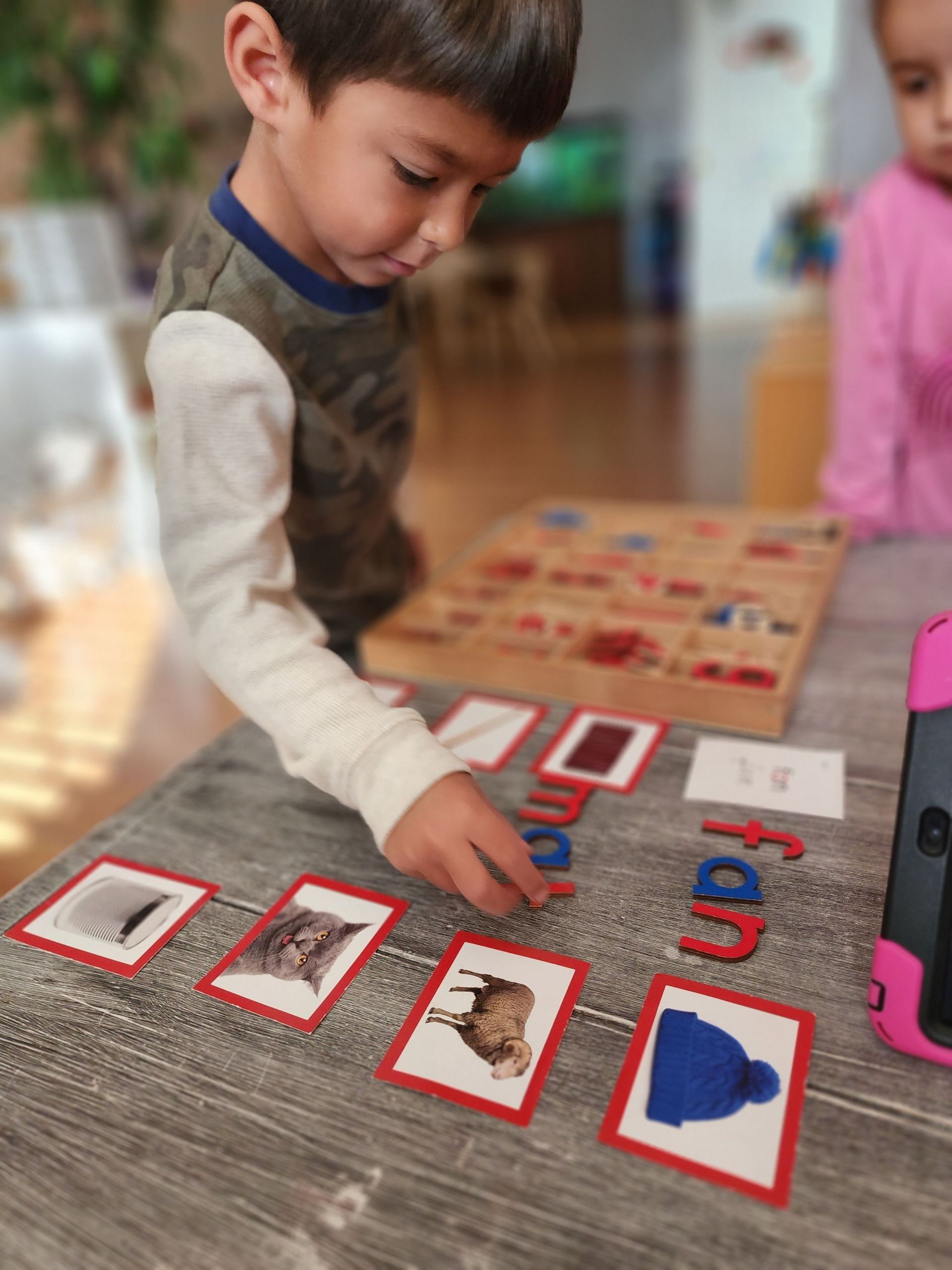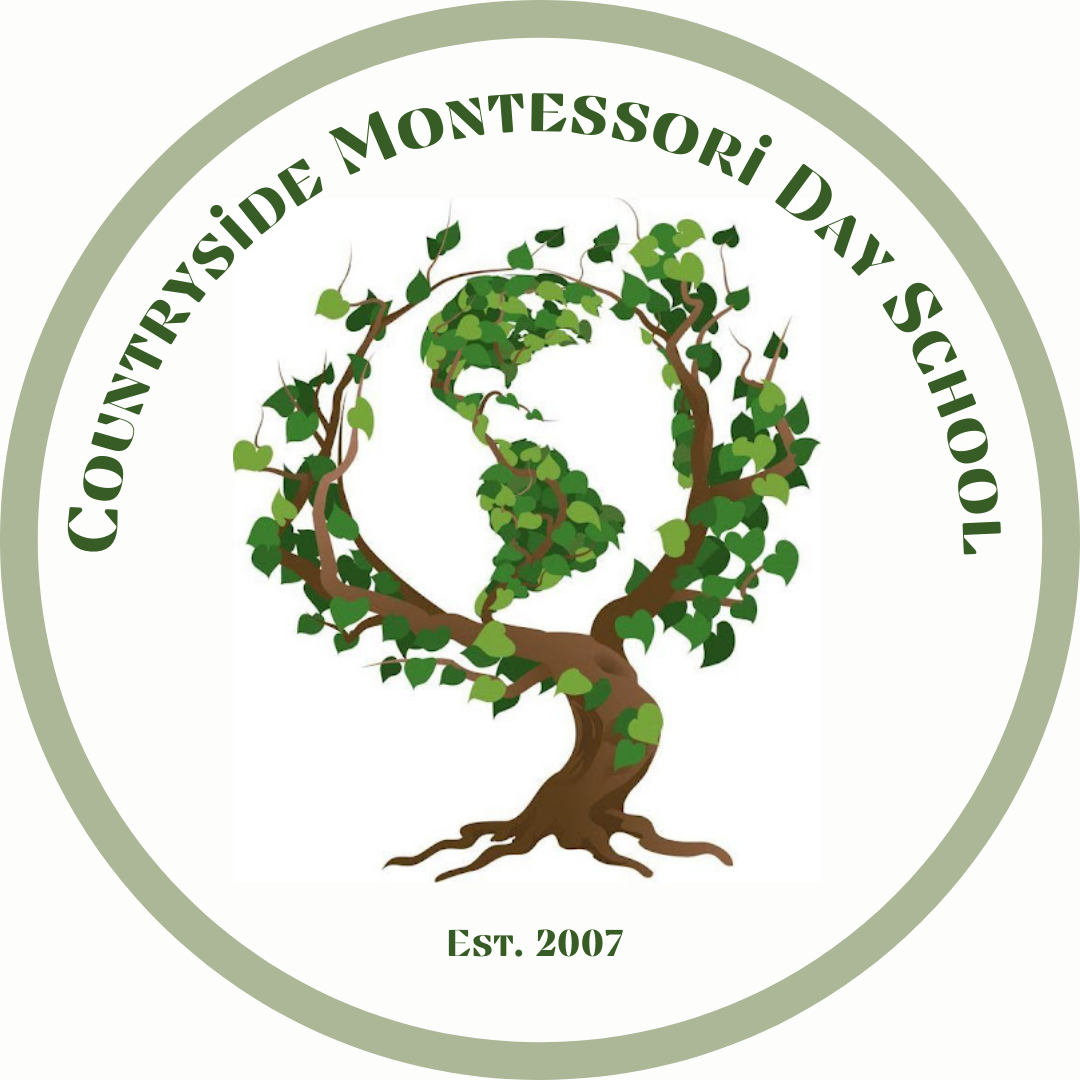Primary EducationAges 3-6 Years Old
Our Primary Education Program
Day in the Life…
At drop-off, our Primary students will say their goodbyes at the classroom door and then head to the cubby room to hang up and put away their belongings. Primary students may start their days on the playground if the weather is nice or in the Primary 1 classroom doing free choice. We ask that Primary students arrive no later than 8:30am as this is when the classrooms transition into their work cycles. Between 8:30am-11:30am, the classrooms partake in their daily work cycle. Children have access to every subject ranging from Math, Language, Science, Geography, Practical Life, Sensorial, and the Arts during this time. Teachers will busy themselves with giving lessons and general guidance while the children run their classrooms following the group constitution created at the start of the year and signed by each student in the class. A line time will also take place during this work cycle where each student is greeted, and a wish-well song is sung for our absent friends. Topics like the season, date, weather, and special events will be discussed, as well as classroom jobs assigned weekly. Group lessons and story times also often happen during line time. A morning snack time is available to students between 9:00am-10:00am, and teachers will encourage students to check in with their bodies to ensure they are fueled enough to make it till lunch. Following the work cycle, students will transition to the playground or free choice in between lunch. Lunch starts at noon, and students are tasked with helping heat their food using the microwave, setting the tables with cutlery and placemats, as well as assisting in the cleaning-up process. After lunch, students who are joining for nap will be laid down by 1:00pm with galaxy lights projected and music or an audiobook playing. Our friends who are not napping are asked to participate in a 30-minute peacetime, which could involve activities like yoga, group or individual storytime, coloring, or floor puzzles. Following this 30-minute peacetime, students will start an afternoon work cycle until 3:00pm when the students who are napping wake up. After cleaning up, students will eat a snack and transition to outdoor time or free choice time until pick up.
Montessori Kindergarten:
The Third Crucial Year
Montessori & The Kindergarten Year
What your child develops and refines during the 3rd year of the 3-6 cycle (Montessori “Kindergarten” year) are the qualities and life skills that they will rely upon as they face each new aspect of life ahead – especially during adolescence, young adulthood and beyond. Your child has been in a unique multi-age, specially designed environment filled with a rich array of multi-sensory materials and the opportunity to actively choose to participate in their education. This experience supports optimal development and is simply not found elsewhere.
The Montessori method works best when a child can experience all three years of the cycle. The first year is really laying the foundation for learning at that stage of development. And the successive years build upon that foundation. In the second year, children explore the lessons and materials in more detail and in the third, children really start to apply their learning in new ways. The third year is critical for the formation of higher-level thinking skills.
The third year in the Montessori environment is really the "capstone" or senior year. Third year students are confident in who they are; they are role models and leaders of the class, taking younger children under their wing to teach and nurture. These older students pass along what they have learned to the younger children and celebrate their learning and acquisition of knowledge and skills. They know how hard it was to learn these skills and are delighted to show their peers.
Our Kindergarten program meets and exceeds Missouri DESE learning standards.
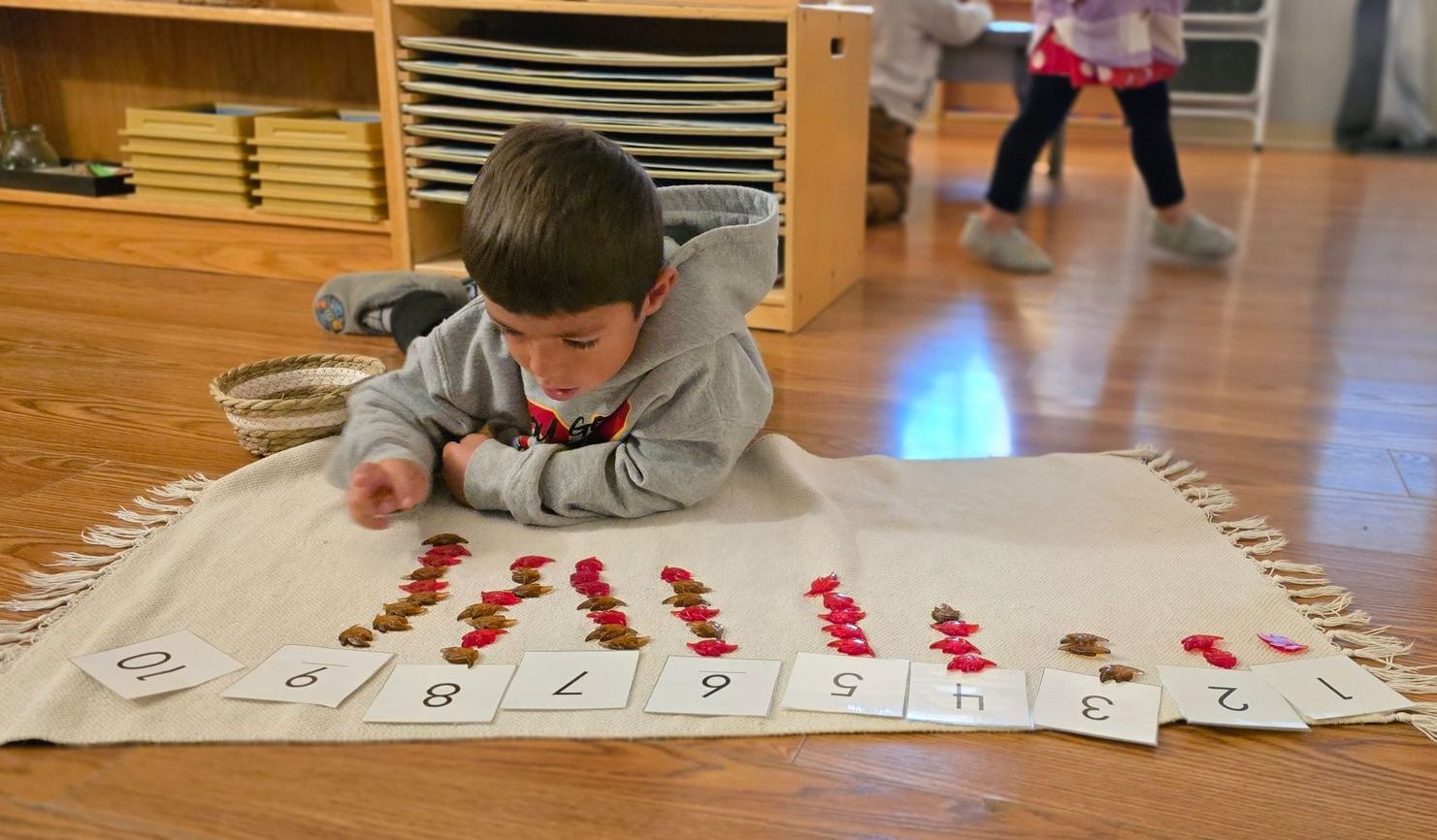
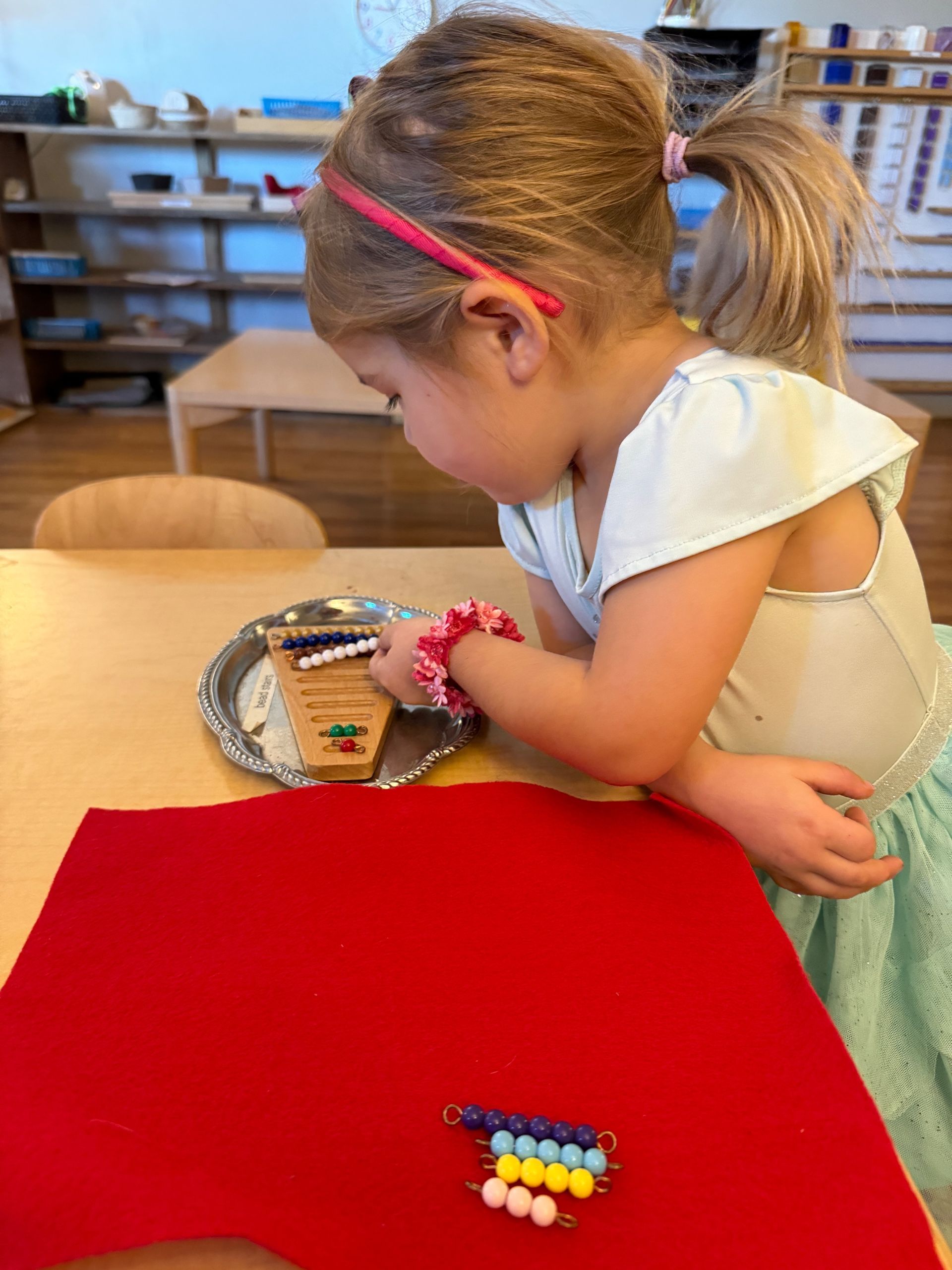
Take into Consideration
- By making decisions and choosing their activities/actions, the child grows into a person who develops initiative, self-direction, and the ability to make wise choices.
- By having and taking the time to work with an activity/concept to mastery, the child becomes a person who develops persistence, concentration, competence, and the ability to think analytically and innovatively.
- By socializing with children of all ages, the child grows into a person who knows how to extend themselves to others and develop positive relationships, and who can lead as well as collaborate anytime, anywhere.
- By learning from small setbacks and building upon small successes, the child grows into a person who is confident and has the ability to face new challenges and triumph!
These are only a few of the foundational life qualities and skills that are developed and refined in the 3rd year of the 3-6 cycle.
"The first essential for the child's development is concentration. The child who concentrates is immensely happy."
- Maria Montessori
